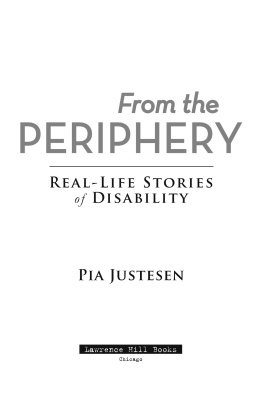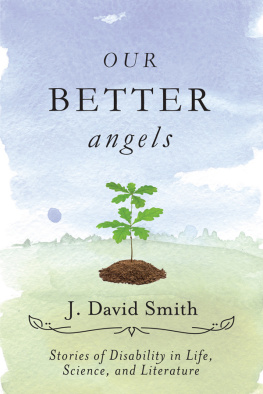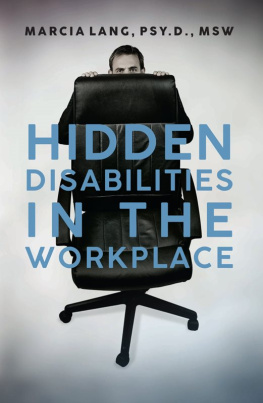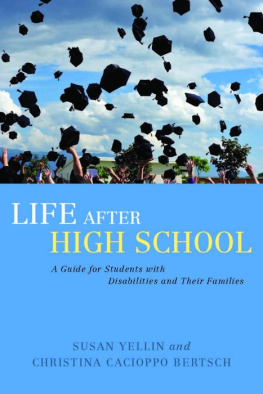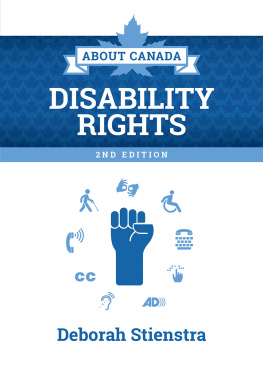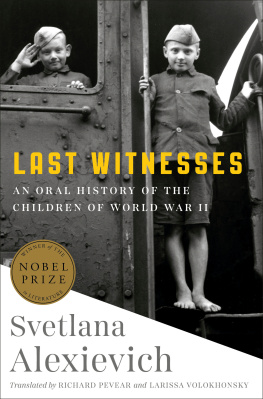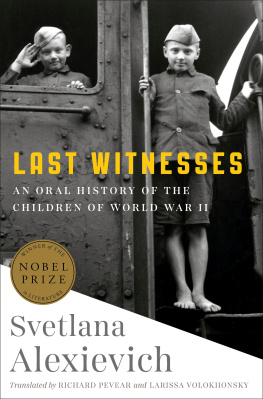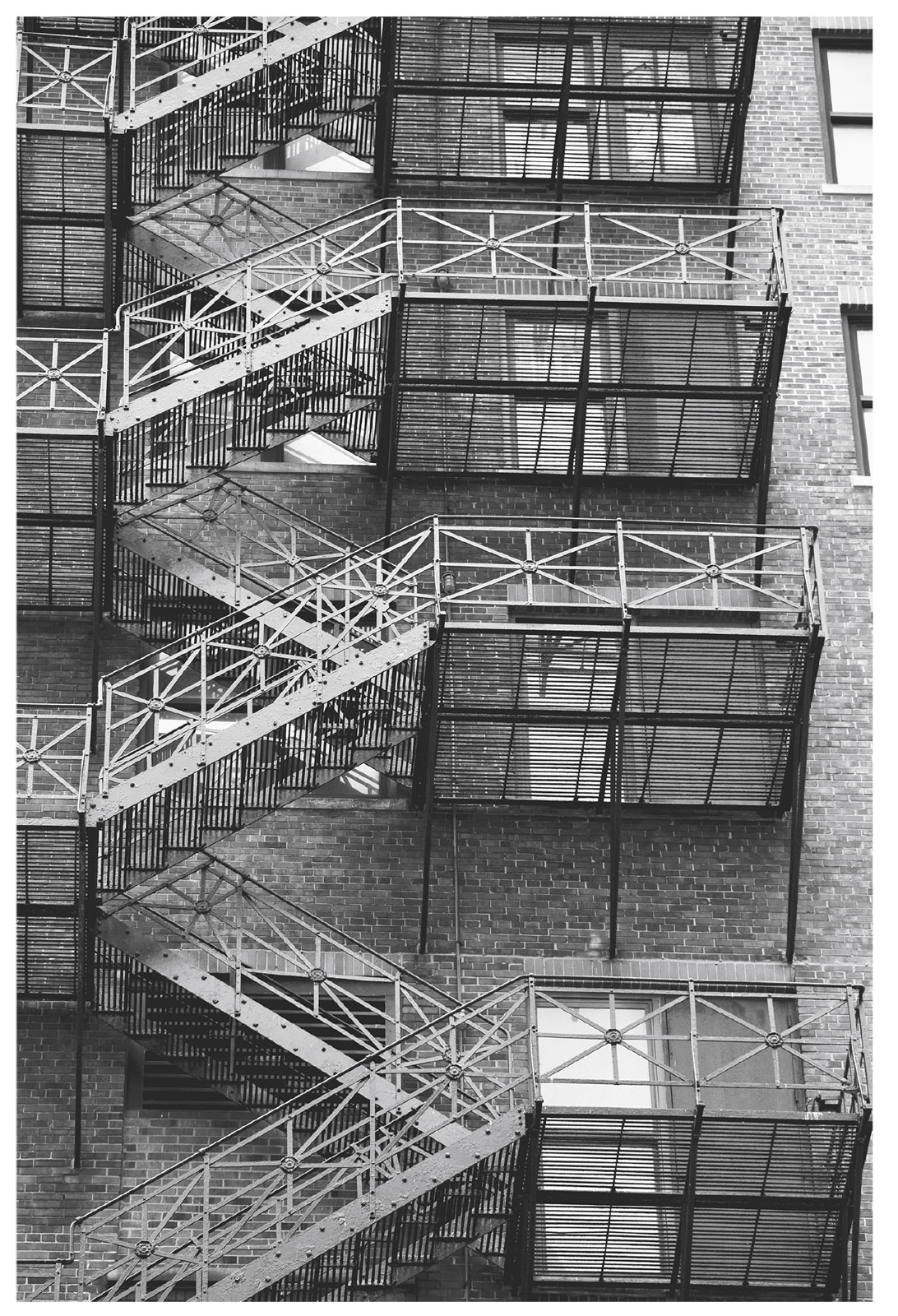Sommaire
Pagination de l'dition papier
Guide
Praise for From the Periphery
In elevating the voices of people who struggle every day for understanding, accommodation, and equal treatment, Pia Justesen has made an important contribution to the movement to end the invisibility of disability. This moving and highly engaging collection demonstrates the many ways in which society imposes institutional, physical, and attitudinal barriers that prevent people with disabilities from enjoying true equality and freedom. A beautiful work of nonfiction.
Nadine Strossen, former president of the ACLU
These extraordinarily moving narratives put us in contact with a set of vivid individuals who know more about the realities of life than many of us, and who testify to their experience with insight, warmth, fury, and humor. Pia Justesen has done a remarkable job in eliciting these candid self-portraits and then crafting them into powerful, evocative stories. The result is a compelling book we very much need at the present momentor maybe always.
Phillip Lopate, author of To Show and to Tell: The Craft of Literary Nonfiction
This book takes the reader on a loving and respectful journey into the hearts and minds of ordinary persons with disabilities with extraordinary tales to tell. It takes the reader into their kitchens and all the small places that Eleanor Roosevelt so cherished. It really takes the reader into their souls. Through their heartfelt testimony, it reveals deep hurt as well as the beauty of the human spirit even in dire circumstances. It touches on the intergenerational effects of disabilitythe love and loneliness of parents and sometimes the distance of siblings. It powerfully reminds us that to be human is to be loved and to feel a sense of belonging. The stories it tells are universal. The right to pursue happinessand love and valuebelongs to all.
Gerard Quinn, Wallenberg chair, Raoul Wallenberg Institute of Human Rights
Unless you are disabled, it is difficult to understand how it feels to be disempowered and excluded by barriers, prejudice, and the false assumptions of others. This book makes painful reading, because it throws light on disabling barriers and shows how deeply they penetrate and effect the life of every person who has an impairment. It helps to give voice to the individuals interviewed and to the wider community of persons with disabilities.
Lisa Waddington, professor and chair in
European disability law at Maastricht University
Copyright 2020 by Pia Justesen
Foreword copyright 2020 by Tom Harkin
All rights reserved
Published by Lawrence Hill Books
an imprint of Chicago Review Press Incorporated
814 North Franklin Street
Chicago, Illinois 60610
978-1-64160-161-0
Library of Congress Cataloging-in-Publication Data
Is available from the Library of Congress.
Photos by Pia Justesen. Taken in Chicago, these photographs illustrate disability life and culture. They also illustrate places that can be difficult to access for people with disabilities and some of the barriers in the environment.
Cover design: Preston Pisellini
Typesetting: Nord Compo
Printed in the United States of America
5 4 3 2 1
This digital document has been produced by Nord Compo.
FOREWORD
by Senator Tom Harkin
DURING MY FORTY-PLUS YEARS of working to advance the cause of full inclusion for persons with disabilities in all aspects of society, I have learned that the most powerful arguments for pursuing this goal come from the voices and stories of real people with disabilities.
This, then, is a powerful book. Pia Justesen has captured these voices and stories in a compelling narrative about the struggles against barriers, both physical and attitudinal, that prevent full inclusion. There are certain themes that weave through most of the stories: anger, isolation, rejection, frustration, and loneliness; pity, patronization, and low expectations.
It is appropriate that the author starts with Marca Bristo. Marca, a personal friend of mine for many years, is one of the pioneers of the independent living movement. Marca has an acquired mobility impairment as the result of a diving accident when she was twenty-three years old. She initially thought the burden was on her to adjust to the world. It never dawned on me that the world had to change. Marca speaks of her anger, how her world shrank, and how my friends would go places that I couldnt go. And I just had to stay home. These are sentiments echoed by many throughout this book. But Marca also talks about how she came to understand that the inability to do certain thingslike going to the grocery storewas not inherent in her or her disability but part of a world of built-in discriminatory practices and structures.
This, in essence, is what the Americans with Disabilities Act (ADA) began to changeto shift the focus from a medical view of disability, which had existed for centuries, to a system in which changes would be made in the built environment: in transportation, housing, public spaces, and private businesses that catered to the general public. These changes would permit individuals with disabilities to be free from artificial barriersto allow them to go to the grocery store.
Another burden that has been like a heavy weight preventing so many disabled youth from dreaming big and pursuing those dreams has been the culture of low expectations. We meet Kiel, whose parents were told they were not being realistic about what [Kiel] was capable of. I have confronted this fear of failure, not on the part of the young person with a disability but on the part of the parents or guardians or the general public. Before I retired from the Senate, I made changes in federal law to keep young persons with disabilities who are graduating from an individualized education program (IEP) from being piped blindly into dead-end, sub-minimum-wage jobs, mainly in what are called sheltered workshops. Now they would first be directed toward competitive integrated employmentreal jobs in the workforce. During committee hearings on this initiative, one parent, well meaning and understandably protective of his child, said, Senator, you are setting these kids up for failure. I replied, And what is your point? Are you saying that kids with disabilities shouldnt face failure? But failure is a part of life, of growing up. All kids try things and find out they dont like that type of work or are not suited for it, until they find something they both like and are capable of doing. Why should kids with disabilities be any different? Let them experience life! The burden of low expectations is repeated in other stories throughout the book. I am sad to say it is still very prevalent in general society today.
Kiels discussions also focus on his loneliness and on being ostracized during his school years. This sense of rejection and isolation, and even bullying in school, is repeated by several other interviewees. Jennifer Wheeler talks about her son eating lunch by himself in the lunchroom every day. Candace Coleman recalls how she wanted to be in a relationship, have fun after school, and socialize with peers, but bullying penetrated my whole life. Curtis Harris remembers that other students treated me like crap.... They called me... retarded. Susan Aarup was isolated in high school and not invited to school dances. Gary Arnolds dwarfism brought bullying, ridicule, and embarrassing encounters in school. Mary Rosenberg was picked on in school and says it affects you for longer than youre probably even aware of.

